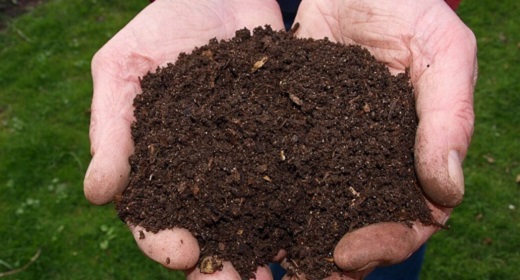by Thich Nhat Hahn: Gathas help us to practice mindfulness in our daily lives and to look deeply…
Reciting these short verses will bring awareness, peace, and joy to the simple activities we may take for granted, like eating a meal, washing our hands, or taking out the garbage. These gathas remind us that Earth provides us with precious gifts every day.
Taking the First Step of the Day
Walking on the Earth
is a miracle!
Each mindful step
reveals the wondrous dharmakaya.
This poem can be recited right as we get out of bed and our feet touch the floor. It can also be used during walking meditation or any time we stand up and walk. Dharmakaya literally means the “body” (kaya) of the Buddha’s teachings (dharma), the way of understanding and love. Before passing away, the Buddha told his disciples, “Only my physical body will pass away. My dharma body will remain with you forever.” In Zen, the word has come to mean “the essence of all that exists.” All phenomena—the song of a bird, the warm rays of the sun, a cup of hot tea—are manifestations of the dharmakaya. We, too, are of the same nature as these wonders of the universe. We do not have to walk in space or on water to experience a miracle; the real miracle is to be awake in the present moment. Walking on the green Earth, we realize the wonder of being alive. When we make steps like this, the sun of the dharmakaya will shine.
Turning on the Water
Water flows from high mountain sources.
Water runs deep in the Earth.
Miraculously, water comes to us
and sustains all life.
Even if we know the source of our water, we often take its appearance for granted. But water is what makes all life on Earth possible. Our bodies are more than 70 percent water. Our food can be grown and raised because of water. Water is a good friend, a bodhisattva, which nourishes the many thousands of species on Earth. Its benefits are infinite. Reciting this gatha before turning on the faucet or drinking a glass of water enables us to see the stream of fresh water in our own hearts so that we feel completely refreshed. To celebrate the gift of water is to cultivate awareness and help sustain our life and the lives of others.
Looking at Your Empty Bowl
My bowl, empty now,
will soon be filled with precious food.
Beings all over the Earth are struggling to live.
How fortunate we are to have enough to eat.
When many people on this Earth look at an empty bowl, they know their bowl will continue to be empty for a long time. So the empty bowl is as important to honor as the full bowl. We are grateful to have food to eat, and with this gatha, we can vow to find ways to help those who are hungry.
Serving Food
In this food,
I see clearly
the entire universe
supporting my existence.
When we look at our plate, filled with fragrant and appetizing food, we should be aware of the bitter pain of people who suffer from hunger and malnutrition. Looking at our plate, we can see Mother Earth, the farm workers, and the tragedy of the unequal distribution of resources. We who live in North America and Europe are accustomed to eating foods imported from other countries, whether it is coffee from Colombia, chocolate from Ghana, or fragrant rice from Thailand. Many children in these countries, except those from rich families, never see the fine products that are put aside for export in order to bring in money. Before a meal, we can join our palms in mindfulness and think about those who do not have enough to eat. Slowly and mindfully, we breathe three times and recite this gatha. Doing so will help us maintain mindfulness. May we find ways to live more simply in order to have more time and energy to change the system of injustice that exists in the world.
Touching the Earth
Earth brings us into life
and nourishes us.
Earth takes us back again.
We are born and we die with every breath.
The Earth is our mother. All life arises from her and is nourished by her. Each of us is a child of the Earth and, at some time, the Earth will take us back to her again. In fact, we are continuously coming to life and returning to the bosom of the Earth. We who practice meditation should be able to see birth and death in every breath. Touching the earth, letting your fingers feel the soil, and gardening are wonderful, restorative activities. If you live in a city, you may not have many opportunities to hoe the earth, plant vegetables, or take care of flowers. But you can still find and appreciate a small patch of grass or earth and care for it. Being in touch with Mother Earth is a wonderful way to preserve your mental health.
Watering the Garden
Water and sun
green these plants.
When the rain of compassion falls,
even the desert becomes a vast fertile plain.
Water is the balm of compassion. It has the capacity to restore us to life. Rain enlivens crops and protects people from hunger. The Bodhisattva of Compassion is often depicted holding a vase of water in her left hand and a willow branch in her right. She sprinkles down compassion, like drops of nurturing water, to revitalize tired hearts and minds weak from suffering. Watering the garden, the compassionate rain falls on the plants. When we offer water to plants, we offer it to the whole Earth. When watering plants, if we speak to them, we are also speaking to ourselves. We exist in relationship to all other phenomena. The feeling of alienation among so many people today has come about because they lack awareness of the interconnectedness of all things. We cannot separate ourselves from society or anything else. This is like this, because that is like that is a phrase taken from the sutras, summarizing the principle of interrelatedness. To water plants and experience compassion and interconnectedness is a wonderful practice of meditation.
Recycling
In the garbage, I see a rose.
In the rose, I see the garbage.
Everything is in transformation.
Even permanence is impermanent.
Whenever we throw something away, whether in the garbage can, the compost, or the recycling, it can smell terrible. Rotting organic matter smells especially terrible. But it can also become rich compost for fertilizing the garden. The fragrant rose and the stinking garbage are two sides of the same existence. Without one, the other cannot be. Everything is in transformation. The rose that wilts after six days will become a part of the garbage. After six months the garbage is transformed into a rose. When we speak of impermanence, we understand that everything is in transformation. This becomes that, and that becomes this. Looking deeply, we can contemplate one thing and see everything else in it. We are not disturbed by change when we see the interconnectedness and continuity of all things. It is not that the life of any individual is permanent, but that life itself continues. When we identify ourselves with life and go beyond the boundaries of a separate identity, we shall be able to see permanence in the impermanent, or the rose in the garbage.









































